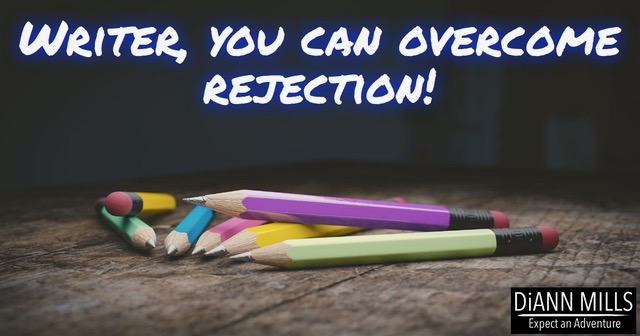
Rejections are introductions, interruptions, and intermissions.
The writing life is filled with expectations. Some are mountain peaks and victories while others are valleys and rejections. Lots of hard work is involved, and those writers who have dreams and goals are willing to pay the price of publication. Most writers have experienced the nonacceptance of a writing piece, and they understand the devastation. We receive an email that says our manuscript doesn’t fit the publisher’s guidelines or current needs, and we shrink into failure syndrome. The sting of rejection can send us to the depths of depression, even quit.
Is rejection ever good for a writer? Optimists claim we haven’t been rejected; we have been redirected. The encouragement sounds good when we give it, but not necessarily so when we receive it. Rejections are introductions, interruptions, and intermissions. This isn’t a time of pride or arrogance but evaluation.

Sometimes we can fix the areas that caused the rejection.
-
The writer’s subject matter doesn’t interest the editor.
-
The writer neglected to read the publisher’s guidelines for submission.
-
The writer submitted a poorly written manuscript.
-
The publishing house is planning a similar title. *This is not the writer’s fault.
-
The writer hasn’t built a social media platform.
Take a deep breath and read the list of advantages below. I think you might be surprised.
Advantages of a rejection
-
The writer experiences personal growth.
-
The writer experiences spiritual growth.
-
The writer develops thick skin—think rhino or elephant skin.
-
The writer is motivated to see their work in print.
-
The writer is determined to learn the craft and skills needed to be successful.
-
The writer is given another opportunity to reach for their publishing dreams and goals.
-
The writer learns patience with themselves and others to begin again.
-
The writer discovers the publishing house might not have been the best fit for their work.
-
The writer analyzes their career, work habits, personal life, and those with whom they surround themselves to evaluate what is the best step forward.
-
The writer studies the habits of successful writers.
Many famous authors received countless rejections, and they didn’t give up: Stephen King, Dr. Seuss, Agatha Christie, Louisa May Alcott, Jane Austen, JK Rowling, Maya Angelou, Joseph Heller, and more.
Dear writer, lift your head, dry your tears, place your fingers on the keyboard, and write.

DiAnn Mills is a bestselling author who believes her readers should expect an adventure. She weaves memorable characters with unpredictable plots to create action-packed, suspense-filled novels with threads of romance. DiAnn believes every breath of life is someone’s story, so why not capture those moments and create a thrilling adventure?
Her titles have appeared on the CBA and ECPA bestseller lists; won two Christy Awards, Golden Scroll, Inspirational Readers’ Choice, and Carol award contests.
